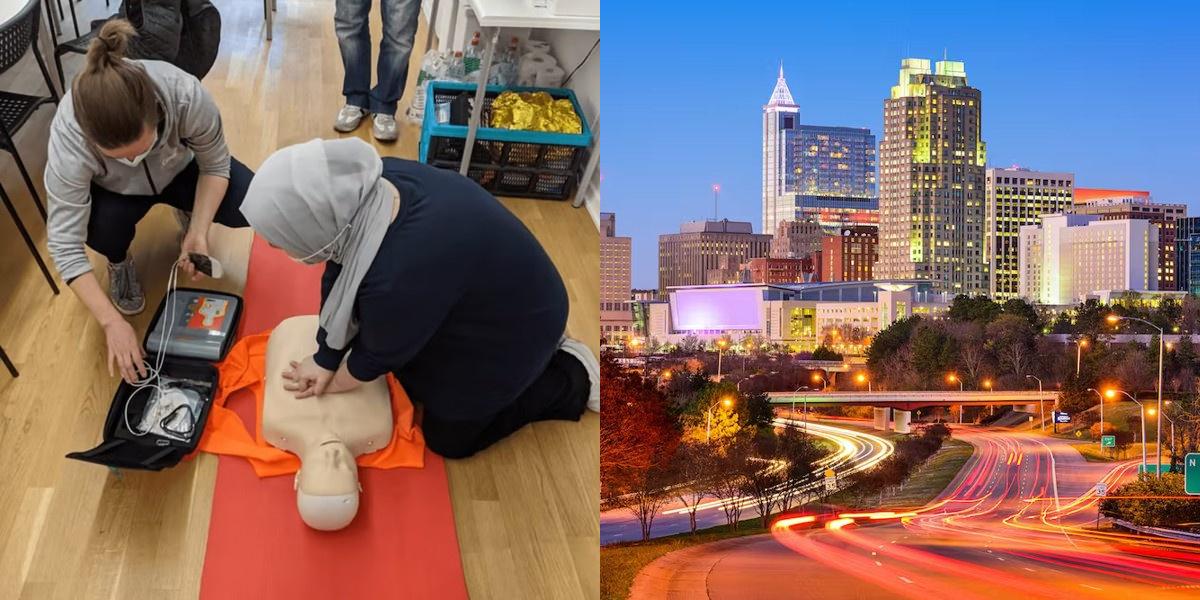How to Become a Paramedic in North Carolina (2025)

If you're looking for a direct path to a high-stakes, rewarding career on the front lines of emergency medicine in North Carolina, becoming a licensed Paramedic is the ultimate goal. The state employs over 9,800 of these highly skilled first responders, who earn a median salary of $49,900 per year, according to the U.S. Bureau of Labor Statistics. This guide provides the definitive 5-step process for navigating North Carolina's specific training, testing, and licensing requirements to launch your career as an advanced life support provider.
Hospitals and Healthcare Facilities
Paramedics can also work in hospitals and other healthcare facilities, such as urgent care centers or trauma centers. In these settings, paramedics may be involved in the initial assessment and stabilization of patients before they are transferred to other departments or units.
Working in a hospital or healthcare facility provides exposure to a broader range of medical conditions and allows for collaboration with other healthcare professionals. Paramedics may also have the opportunity to specialize in areas such as critical care transport or emergency department (ED) operations.
Fire Departments
Many fire departments employ paramedics as part of their emergency response teams. Paramedics in fire departments respond to a variety of emergencies, including fires, hazardous material incidents, and rescue operations.
Working in a fire department can be physically demanding, as paramedics may be required to perform tasks such as lifting heavy equipment or climbing ladders. However, it also provides the opportunity to work closely with firefighters and be part of a close-knit team.
Education and Training
After gaining experience as a paramedic, some individuals choose to pursue careers in education and training. They may become instructors at paramedic training programs, teaching future generations of paramedics.
Paramedic educators play a crucial role in shaping the knowledge and skills of aspiring paramedics. They develop curriculum, deliver lectures and practical training, and assess students' progress. This career path allows paramedics to share their expertise and give back to the profession.
Specializations and Advanced Practice
Paramedics who are interested in further specialization and advanced practice can pursue additional education and certifications. For example, some paramedics become flight paramedics, providing emergency medical care in air transport settings.
Other paramedics may choose to become critical care paramedics, who specialize in providing advanced life support to critically ill or injured patients. Critical care paramedics often work in intensive care units (ICUs) or on specialized transport teams.
Frequently Asked Questions
How long does it take to become a Paramedic in NC?
Becoming a Paramedic in North Carolina typically takes about 1-2 years. This includes completing an accredited paramedic training program after obtaining a high school diploma or GED equivalent. After graduation, passing the National Registry of Emergency Medical Technicians (NREMT) exam and obtaining state licensure are required before beginning work.
How much does a Paramedic make in North Carolina?
How much does a paramedic make an hour in North Carolina? The median hourly wage for a Paramedic in North Carolina is approximately $23.99 per hour.
Do you have to be an EMT before you can be a paramedic in North Carolina?
Yes, absolutely. Holding a valid EMT credential is a mandatory prerequisite for enrolling in any paramedic program in the state.
Final Thoughts
Becoming a paramedic requires dedication, hard work, and a genuine desire to help others. The path to paramedic certification involves completing a state-approved paramedic training program, passing the NREMT exam, and obtaining state licensure.
Once certified, paramedics can pursue various career paths in ambulance services, hospitals, fire departments, education and training, or through specialization and advanced practice. With the demand for emergency medical services continuing to grow, the opportunities for paramedics are vast.
If you are passionate about saving lives and thriving in high-pressure situations, a career as a paramedic can be both fulfilling and rewarding. Take the first step towards your paramedic certification and embark on a journey that will make a difference in the lives of others.
Dreambound offers a window into various career paths, so if you're considering a shift in your career, browse through these articles:

Jessa Guzon is a member of the School Growth and Customer Success Team in Dreambound. She finds joy in assisting both schools and students in reaching their goals by answering their queries and connecting them with the right people. Outside her professional role, Jessa is a happy-go-lucky person with a thirst for adventure.




